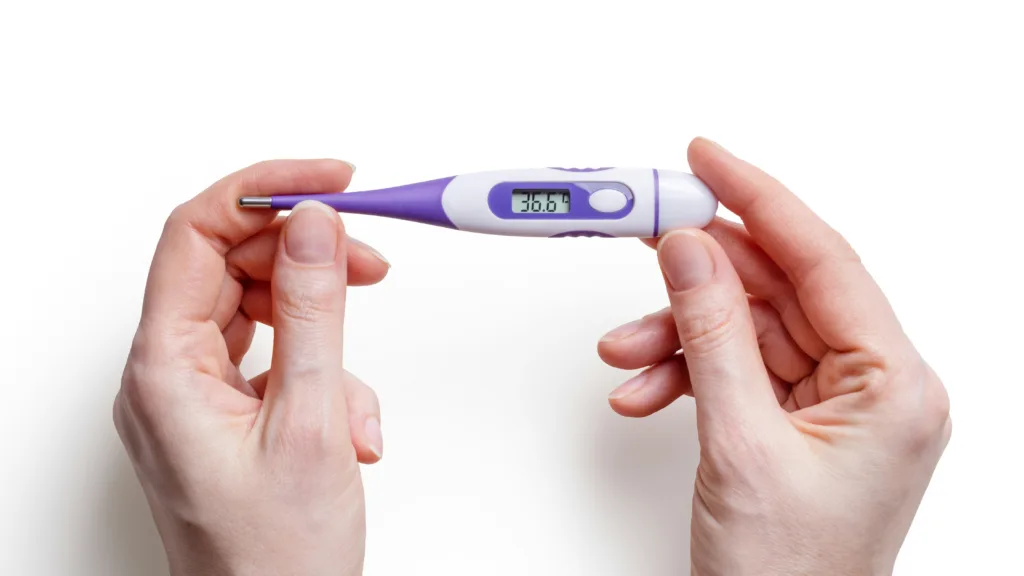When it comes to fertility, your body has a unique story to tell. You get a glimpse of that storey with each monthly cycle.
Your period is not a monthly inconvenience; it is a window into your overall health, especially your reproductive health.
Understanding the language of your menstrual cycle can provide valuable insights into your fertility journey.
The regularity of your menstrual cycle, the length of your periods, and the timing of ovulation play vital roles in your fertility. Tracking these factors can help you decipher the messages your body is sending.
Are your cycles consistent and predictable? Does ovulation occur regularly? Is your period’s flow and duration within the normal range?

These are all questions that can uncover valuable insights into your reproductive well-being.
If you have been trying to conceive without success or simply want to understand your fertility better, diving into the intricacies of your menstrual cycle is a powerful first step.
When you better understand your menstrual cycle, you become further empowered in your fertility journey. You’ll also be more equipped to make informed decisions about your reproductive health.
In this blog post, we’ll discuss the significance of period regularity. You’ll understand the link between ovulation and menstrual health. We’ll also discuss how your menstrual flow can provide essential clues about your reproductive wellness.
The Link Between Period Regularity and Fertility
The regularity of your periods plays a crucial role in determining your fertility health. A normal menstrual cycle typically ranges from 24 to 35 days, and regular cycles are a good indication that ovulation has occurred.
If your cycles consistently fall shorter than 24 days or longer than 35 days, it may suggest a lack of regular ovulation, which can make conception more challenging.
Tracking your periods and paying attention to any irregularities or variations in cycle length is the first place to start when identifying potential issues with ovulation and fertility.
- Monitor the start and end dates of your periods
- Note any variations in the length of your menstrual cycle
- Keep track of any changes in period flow or intensity
You can do this on a paper calendar, in your phone calendar, or use a dedicated app like OvaGraph or Read Your Body.
By actively tracking the length of your cycle, better understand your reproductive health and identify any potential fertility concerns.
If your period is longer than 35 days or shorter than 24 days, or if it’s non-existent, we need to understand why.
Factors like stress and diet are often the first to address, but working directly with a Women’s Nutritional Therapist like myself can help save you valuable time in getting to the root of your short or lengthy cycles.
Why An Irregular Period is Concerning for Fertility
Missing your period or having a long cycle also means that you’re missing out on regular ovulation. Ovulation occurs when a mature egg is released from the ovary.
After ovulation, the ruptured follicle transforms into a structure called the corpus luteum. This corpus luteum is responsible for producing progesterone, a hormone necessary for a healthy pregnancy.
Signs of low progesterone can include:
- Irregular Menstrual Cycles
- Short Menstrual Cycles
- Spotting Before Menstruation
- Premenstrual Syndrome (PMS) Symptoms
- Low Basal Body Temperature (BBT)
- Vaginal Dryness
- Changes in Libido
- Fatigue and Low Energy Levels
The Role of Progesterone
Progesterone is necessary in preparing the uterine lining for a fertilized egg’s implantation.
It also helps maintain the uterine lining throughout pregnancy and prevents it from shedding, which is essential for the embryo’s survival.
Missing Ovulation and Low Progesterone
If ovulation doesn’t occur, or if it is irregular, the corpus luteum may not develop adequately, resulting in insufficient progesterone production.
Low progesterone levels can impact the endometrial lining, making it less receptive to implantation and increasing the risk of miscarriage.
High-Risk Pregnancies
Low progesterone levels, often associated with irregular or absent ovulation, can lead to various complications during pregnancy. Some of the potential risks include:
- Increased Risk of Miscarriage: Inadequate progesterone levels can compromise the ability of the uterus to support a developing embryo, leading to an increased risk of miscarriage.
- Preterm Birth: Insufficient progesterone may contribute to an increased risk of preterm birth, as the hormone is crucial for maintaining the uterine environment throughout pregnancy.
- Developmental Issues: Low progesterone levels can affect the proper development of the placenta and the fetus, potentially leading to developmental issues.
Importance of Regular Periods with Strong Ovulations
For women planning to conceive, understanding and tracking ovulation is crucial.
Regular menstrual cycles and predictable ovulation help ensure optimal progesterone production and a conducive environment for a healthy pregnancy.

Understanding Menstrual Flow and its Connection to Fertility
The duration and intensity of your period also indicate fertility health.
A normal period typically lasts between 4 to 7 days, with consistent bleeding. It’s important to pay attention to any changes in your menstrual flow. This helps you identify potential issues with your fertility health.
Prolonged or heavy bleeding: If your period lasts longer than 7 days or you experience heavy bleeding that requires frequent changes of sanitary products, it may be a sign of hormonal problems or structural issues in the uterus.
Because of an imbalance, I used to have to use an ultra tampon and a super pad together because my flow was so heavy. I couldn’t use menstrual cups because they would fill in only an hour or two.
Once I identified those imbalances and worked on regulating them, I was able to use regular pads and tampons and no longer feared bleeding through.
Signs of hormonal problems: Menstrual flow that is irregular, with unpredictable start and end dates, may also suggest hormonal imbalances. Hormonal disruptions can affect ovulation and consequently impact fertility.
Addressing underlying issues: If you notice any abnormal changes in your menstrual flow, it’s important to understand why. When we are under a lot of stress, dieting, traveling, starting a new workout routine, etc, our periods can take time to adjust.
However, if long, short, heavy, or light periods are “normal” for you, we need to get to the root cause of it.
Understanding the connection between menstrual flow and fertility can help you take proactive steps to monitor and manage your reproductive health.
Fertility Insights From Your Period
Your menstrual cycle and period provide valuable insights into your fertility health. By understanding the regularity of your periods, tracking your cycle length, and paying attention to changes in menstrual flow, you can identify potential issues with ovulation and fertility. If you are concerned about your fertility or have been trying to conceive without success, seek guidance from a women’s nutritional therapist or fertility specialist.
Working with professionals like me, Johanna Clark, at Wild Muse Wellness can help identify and address any underlying factors that may be affecting your period and fertility.
Remember, having a regular and healthy menstrual cycle is crucial for overall fertility health. By taking control of your menstrual health, you can optimize your chances of conceiving and achieving your dream of starting a family.
Your period is a fundamental part of your reproductive health.
Prioritize your reproductive health, listen to your body, and take proactive steps toward achieving your fertility goals.
FAQ
What can your period tell you about your fertility?
Your period and menstrual cycle can provide important insights into your fertility. The regularity of your periods, the duration and intensity of your menstrual flow, and any changes in these patterns can indicate potential issues with ovulation and fertility.
How does period regularity affect fertility?
Regular periods typically indicate regular ovulation, making conception more likely. If your cycles are consistently shorter than 24 days or longer than 35 days, it may suggest irregular ovulation. Irregular ovulation can affect fertility.
Why is tracking your periods important for fertility?
Tracking your periods and noting any irregularities or variations in cycle length can help identify potential issues with fertility. It provides valuable information to fertility specialists in diagnosing and addressing any underlying problems.
Are there any signs in menstrual flow that might suggest fertility problems?
Yes, prolonged or heavy bleeding may indicate hormonal problems or structural issues in the uterus, which can affect fertility. It’s important to pay attention to any changes in your menstrual flow and consult a medical professional if you experience excessively long or heavy periods.

